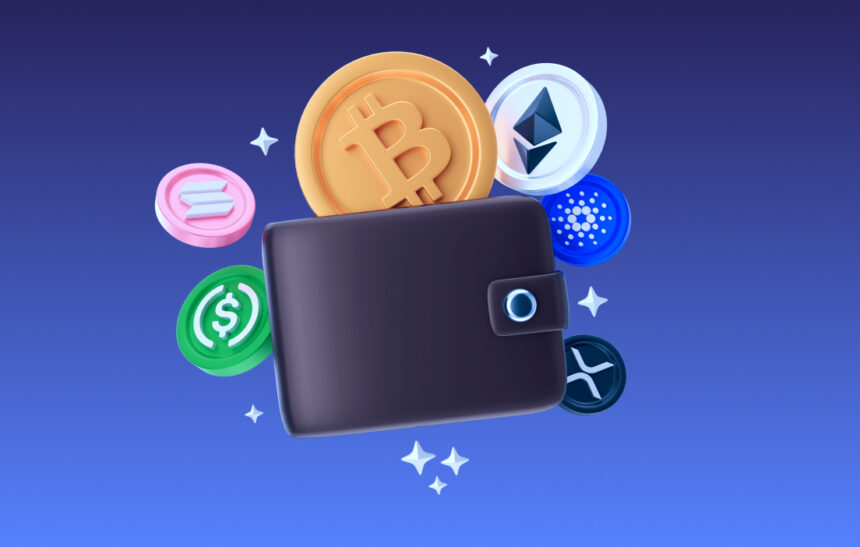In the world of cryptocurrency, securing your digital assets is paramount. Just like how you would store your physical money in a safe, crypto users need a secure method to store their coins. This is where crypto wallets come in. However, not all wallets are created equal. Two main types of wallets are commonly used in the crypto space: hot wallets and cold wallets. In this article, we’ll dive deep into what these wallets are, how they work, and which one might be right for you based on your needs.
What are Crypto Wallets?
A crypto wallet is a digital tool that allows users to store, send, and receive cryptocurrencies such as Bitcoin, Ethereum, and others. It contains private keys, which are crucial for authorizing transactions on the blockchain. While the term “wallet” may imply a physical object like a leather pouch or a bank account, in the cryptocurrency world, a wallet is purely digital.
There are two main types of crypto wallets: hot wallets and cold wallets. Both of these types serve the same fundamental purpose but differ in terms of security, accessibility, and how they store your private keys.
What is a Hot Wallet?
A hot wallet is a cryptocurrency wallet that is connected to the internet. Since it is online, it is very convenient for frequent use, allowing users to access and manage their crypto assets at any time from anywhere. Hot wallets are typically used for everyday transactions, such as buying goods or exchanging cryptocurrencies. Examples of hot wallets include:
- Software wallets: These are applications installed on your computer or mobile device.
- Web wallets: These wallets are accessed through web browsers and are often provided by cryptocurrency exchanges.
- Mobile wallets: Apps available for smartphones that let you manage your crypto assets on the go.
Pros of Hot Wallets:
- Easy to Access: Hot wallets are ideal for those who need quick and easy access to their crypto assets.
- Convenient for Transactions: They make it simple to send and receive cryptocurrencies, making them perfect for day-to-day use.
- Free or Low-Cost: Most hot wallets are either free or have low fees associated with their use.
Cons of Hot Wallets:
- Vulnerable to Hacks: Since hot wallets are connected to the internet, they are vulnerable to cyberattacks, phishing attempts, and hacking.
- Less Secure: If your computer or mobile device gets compromised, your private keys could be exposed, putting your funds at risk.
- Dependency on Internet Connection: If your internet connection goes down or is unstable, it may limit your access to your wallet.
What is a Cold Wallet?
A cold wallet is a cryptocurrency wallet that is not connected to the internet. Cold wallets are considered much safer for long-term storage because they are not vulnerable to online threats. Examples of cold wallets include:
- Hardware wallets: These are physical devices, such as USB drives, that store your private keys offline.
- Paper wallets: A paper wallet is a physical piece of paper with your private keys printed on it. This can be scanned or typed into a device when needed.
Pros of Cold Wallets:
- Highly Secure: Cold wallets are not connected to the internet, which means they are immune to online hacking and phishing.
- Ideal for Long-Term Storage: Since cold wallets are more secure, they are often preferred for holding large amounts of cryptocurrency for the long term.
- Protection from Exchange Failures: Cold wallets reduce the risk of losing your crypto assets in case an exchange goes down or is compromised.
Cons of Cold Wallets:
- Less Convenient for Frequent Use: Since cold wallets are offline, you cannot access your crypto assets as easily or quickly as you would with a hot wallet.
- Physical Risks: For hardware wallets and paper wallets, if the device or paper is lost, damaged, or stolen, your assets could be irretrievably lost.
- Initial Cost: Some cold wallets, like hardware wallets, come with a cost, which may be a barrier for some users.
The Key Differences Between Hot and Cold Wallets
While both hot and cold wallets serve the same purpose, they each come with their own set of benefits and drawbacks. Understanding the key differences will help you decide which option suits your needs best.
| Feature | Hot Wallet | Cold Wallet |
|---|---|---|
| Connection to Internet | Connected to the internet | Not connected to the internet |
| Security | Lower security due to online risks | Higher security due to offline storage |
| Convenience | Easy and fast access for frequent transactions | Less convenient for frequent use |
| Ideal Usage | Daily transactions, trading, and small amounts | Long-term storage of large amounts of crypto |
| Examples | Mobile apps, web wallets, software wallets | Hardware wallets, paper wallets |
Which Wallet Should You Use?
The decision of whether to use a hot or cold wallet depends largely on your needs and preferences. Here are some guidelines to help you decide:
Use a Hot Wallet if:
- You are an active trader or frequently use cryptocurrencies for daily transactions.
- You need quick access to your crypto for trading or purchasing goods and services.
- You are okay with a slightly higher risk in exchange for convenience.
- You store only a small amount of crypto in your wallet and don’t mind the potential risks of being online.
Use a Cold Wallet if:
- You are holding cryptocurrencies for the long term and don’t need frequent access.
- You prioritize security and want to protect your assets from online threats.
- You are holding large amounts of cryptocurrency that would be devastating to lose.
- You are okay with the added complexity and cost of offline storage.
How to Keep Your Crypto Safe
Regardless of whether you use a hot or cold wallet, it’s important to implement strong security practices to protect your assets. Here are some tips:
- Use Strong Passwords: Always use strong, unique passwords for your wallet accounts and devices.
- Enable Two-Factor Authentication (2FA): This adds an additional layer of security to your hot wallet.
- Back Up Your Private Keys: For both hot and cold wallets, make sure to back up your private keys and recovery phrases in a secure location.
- Use Hardware Wallets for Large Amounts: For long-term storage of significant amounts of cryptocurrency, it’s best to use a hardware wallet.
- Avoid Phishing Scams: Be cautious of emails or websites that ask for your private keys or other sensitive information.
The Future of Crypto Wallets
As the cryptocurrency ecosystem continues to grow, so does the technology surrounding crypto wallets. New developments in wallet security, privacy features, and user experience are constantly being released. In the future, we may see more sophisticated cold storage solutions, better integration of multi-signature wallets, and wallets with enhanced security measures, making them both safer and more accessible for all users.
Conclusion
Whether you choose a hot wallet or a cold wallet depends on your specific needs as a cryptocurrency user. Hot wallets are perfect for active traders and those who need frequent access to their crypto, while cold wallets offer the highest level of security for long-term storage. Understanding the differences between these wallets and how they can protect your digital assets is the first step in becoming a knowledgeable and secure cryptocurrency user.
By implementing best security practices and choosing the right wallet for your needs, you can enjoy the benefits of cryptocurrency while minimizing risks. Always stay informed, and be proactive about safeguarding your digital wealth.

